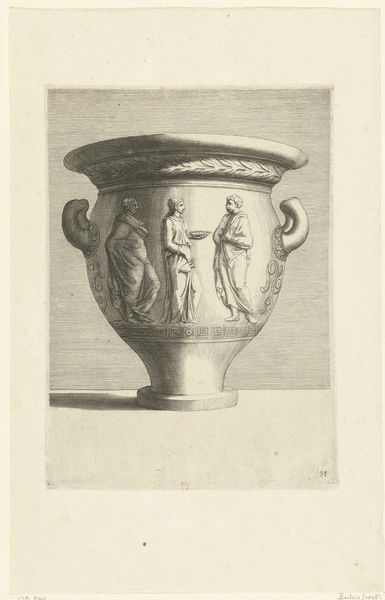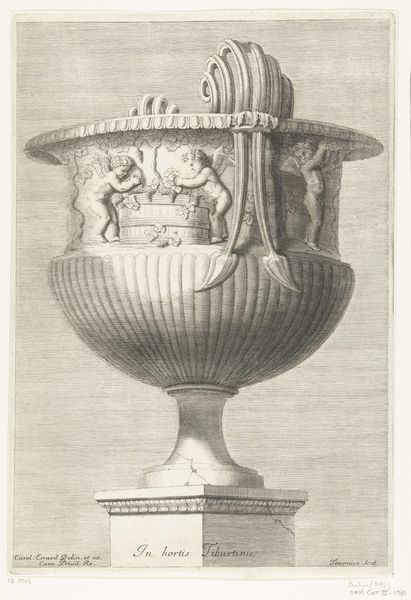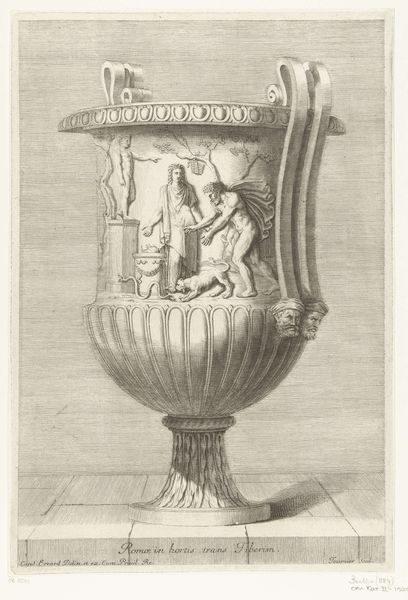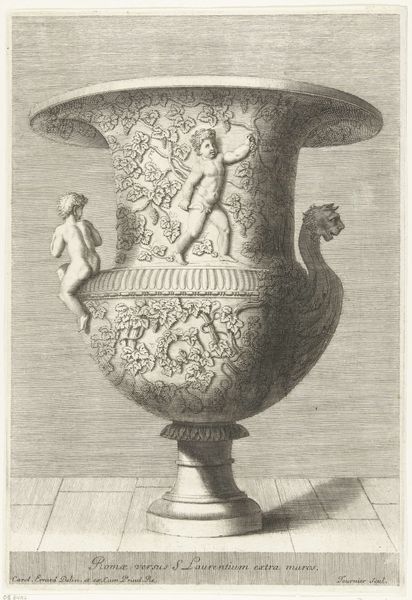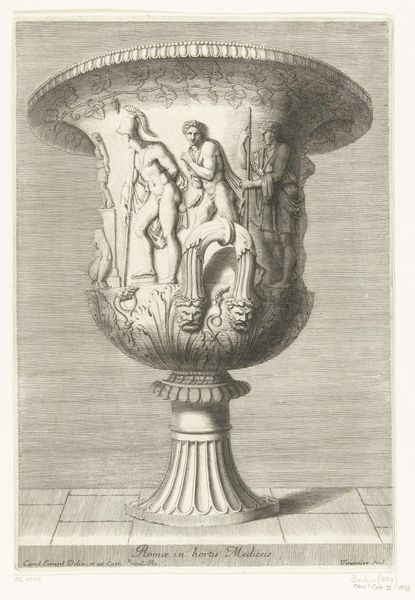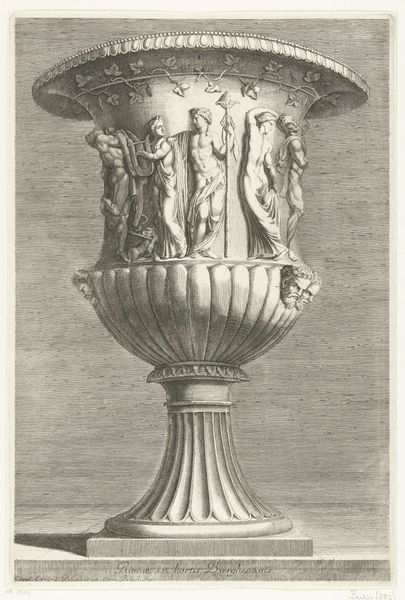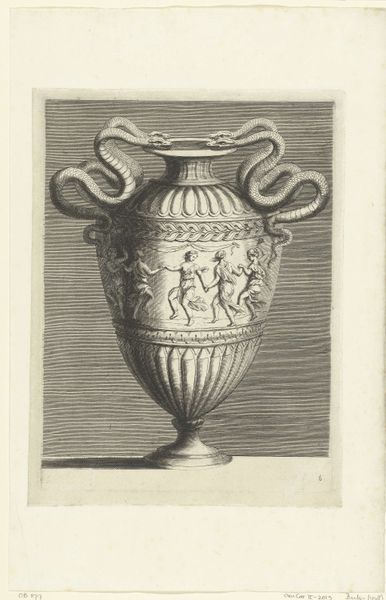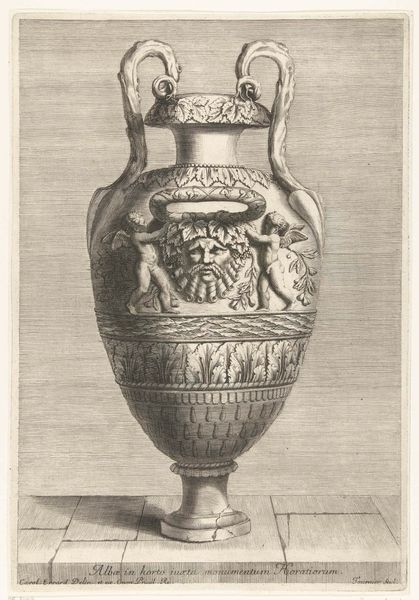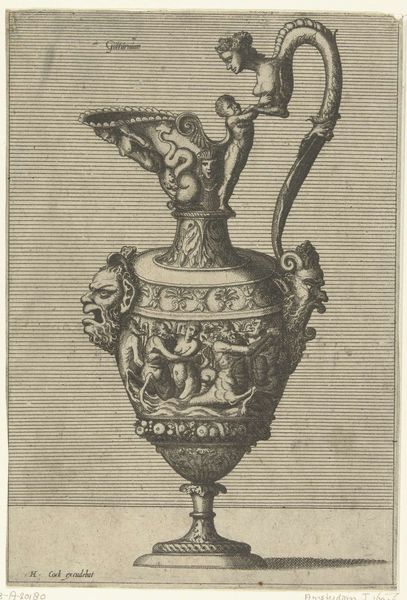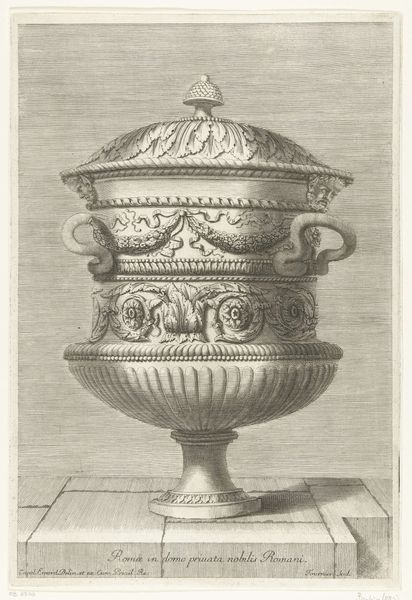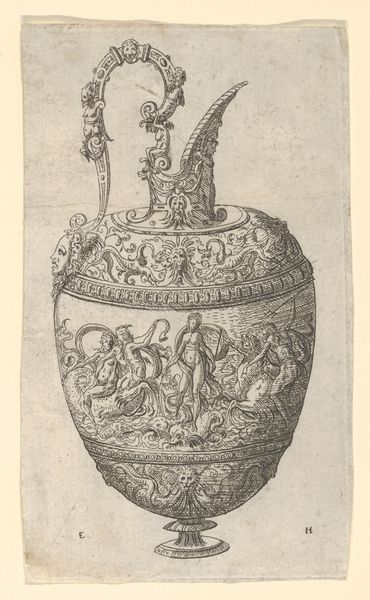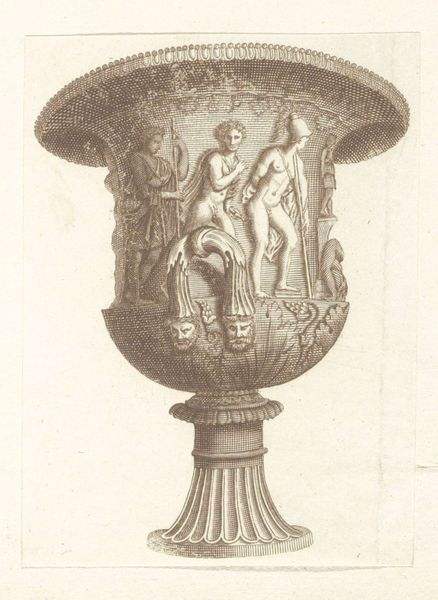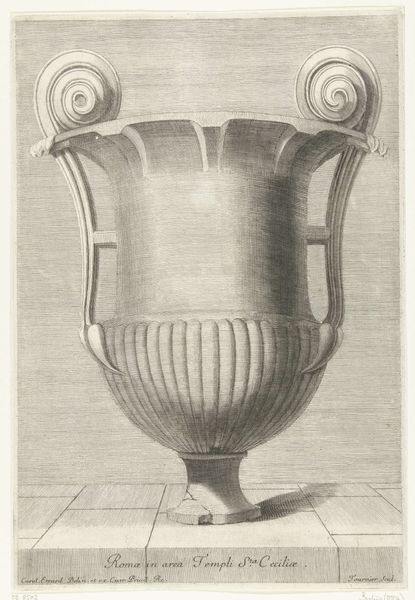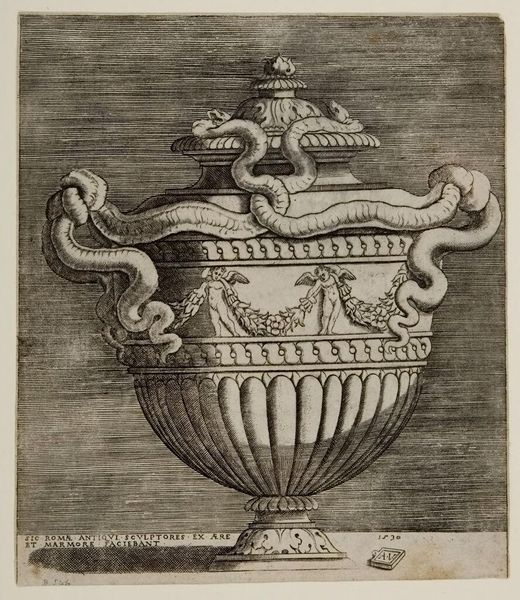
engraving
#
baroque
#
old engraving style
#
classical-realism
#
figuration
#
history-painting
#
engraving
Dimensions: height 326 mm, width 223 mm
Copyright: Rijks Museum: Open Domain
This print of a vase with figures on top was made by Georges Tournier. The printmaking process itself is quite fascinating. Notice the crisp lines and subtle tonal variations, achieved through a technique called etching. The artist would have covered a metal plate with a waxy, acid-resistant ground, then drawn an image into it with a needle. When dipped in acid, the exposed lines would be eaten away, creating grooves in the metal. Ink is then applied into these grooves, and the plate is pressed onto paper, transferring the design. The material properties of the metal plate and the acid’s bite are vital to the aesthetic. Unlike a drawing, where the hand directly applies the medium, here the image is mediated through a chemical process. Also, the depicted vase looks as though it is made of stone. The artist is therefore representing a handcrafted object, by means of a more industrialized process. This reminds us that even when we admire the skill of an artist, we are also looking at the contribution of materials, chemicals, and labor involved in its production. Appreciating this interplay challenges any simple distinction between art and craft.
Comments
No comments
Be the first to comment and join the conversation on the ultimate creative platform.
